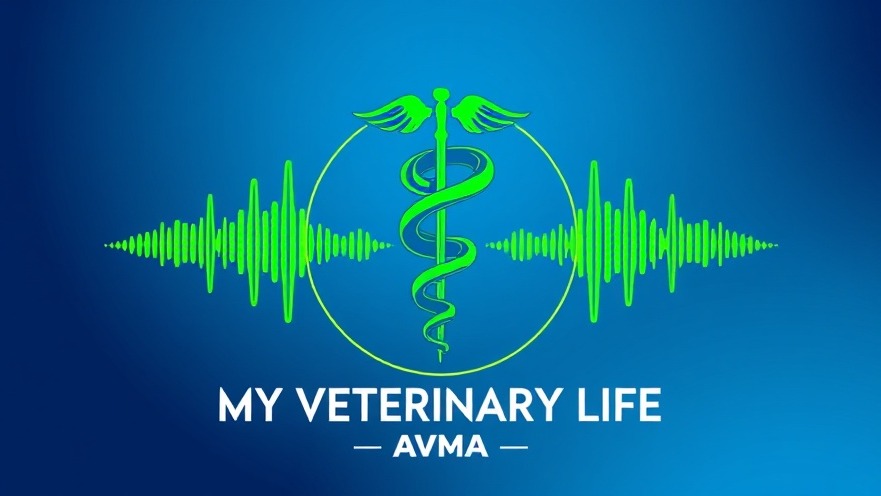
Understanding Resilience in Animal Care
Resilience is not just a human trait; it is essential in the world of pet ownership and veterinary care. In a recent podcast episode featuring Dr. Robyne Hanley-Dafoe, the discussion delved into how resilience applies to both our emotional well-being and the health of our pets. For pet owners and professionals alike, cultivating resilience can significantly impact how we respond to challenges in our lives and the lives of the animals we care for.
The Importance of Resilience for Pet Owners
Life with pets comes with its fair share of ups and downs—from the joys of training a puppy to the grief of caring for an aging pet. Resilience helps pet owners remain positive and proactive despite setbacks. Dr. Hanley-Dafoe’s insights remind us that resilience is not merely about bouncing back; it’s about learning, adapting, and growing stronger in the face of adversity. This mindset can transform a pet owner’s experience, enabling them to provide better care and create a loving environment for their animals.
Veterinarians and the Need for Resilience
Veterinarians face unique pressures daily, including emotional burdens from making difficult decisions about pet care. Building resilience within this profession is crucial. As Dr. Hanley-Dafoe suggests, fostering mental health awareness and strategies for resilience can help veterinary professionals cope with the emotional challenges of their work. This could lead to improved job satisfaction and better outcomes for the pets they treat. Considering that burnout is common in veterinary medicine, these strategies are essential for maintaining a sustainable career in animal healthcare.
Creating Resilient Environments for Trainers and Groomers
For trainers and groomers, understanding and promoting resilience is vital. Training animals often takes patience and consistency, and resilience helps professionals navigate through tough training sessions or grooming disasters. Dr. Hanley-Dafoe emphasizes the value of creating supportive environments that encourage professionals to share experiences and strategies. A community that fosters resilience can empower trainers and groomers to innovate their methods and develop stronger bonds with the pets they work with.
Why Rescues & Shelters Must Embrace Resilience
Rescue organizations operate under significant emotional and logistical pressures. They often face high-stress situations, including overcrowding and resource limitations. Building resilience in shelters not only benefits the staff but also leads to better care for the animals. Incorporating resilience-focused training for shelter workers can significantly improve the well-being of both the animals and the people working tirelessly on their behalf. Dr. Hanley-Dafoe stresses the importance of community support and shared resources to foster resilience within these organizations.
Tech and Innovation Users: The Role of Resilience
As technology continues to evolve in the pet care industry, it's crucial for tech and innovation users to adopt a resilient approach. Embracing new tools and methods requires a mindset willing to experiment and adapt. Dr. Hanley-Dafoe's insights highlight that resilience is a key trait for anyone in the industry looking to improve their offerings and enhance pet care services. Whether it's through data analysis or developing new training applications, a resilient mindset will help innovation users remain competitive and effective.
Moving Forward: Embracing the Concept of Resilience
The idea of resilience can enhance our approach to pet ownership and professional practices. Dr. Hanley-Dafoe encourages all pet enthusiasts, whether they are pet owners, veterinarians, or working in shelters, to cultivate their resilience. Emphasizing self-care, community support, and proactivity helps foster an environment where pets and humans thrive. As we continue to navigate the challenges of caring for our beloved animals, let us remember that building resilience is a journey—one that enriches our lives and the lives of our pets.
Take Action: Building Resilience Today
As you reflect on the insights shared by Dr. Robyne Hanley-Dafoe, consider ways to implement resilient strategies in your pet care routines. Share your experiences and connect with fellow pet owners or professionals to create supportive networks. Together, you can develop resilience and provide unmatched care for your furry companions.
 Add Row
Add Row  Add
Add 


Write A Comment